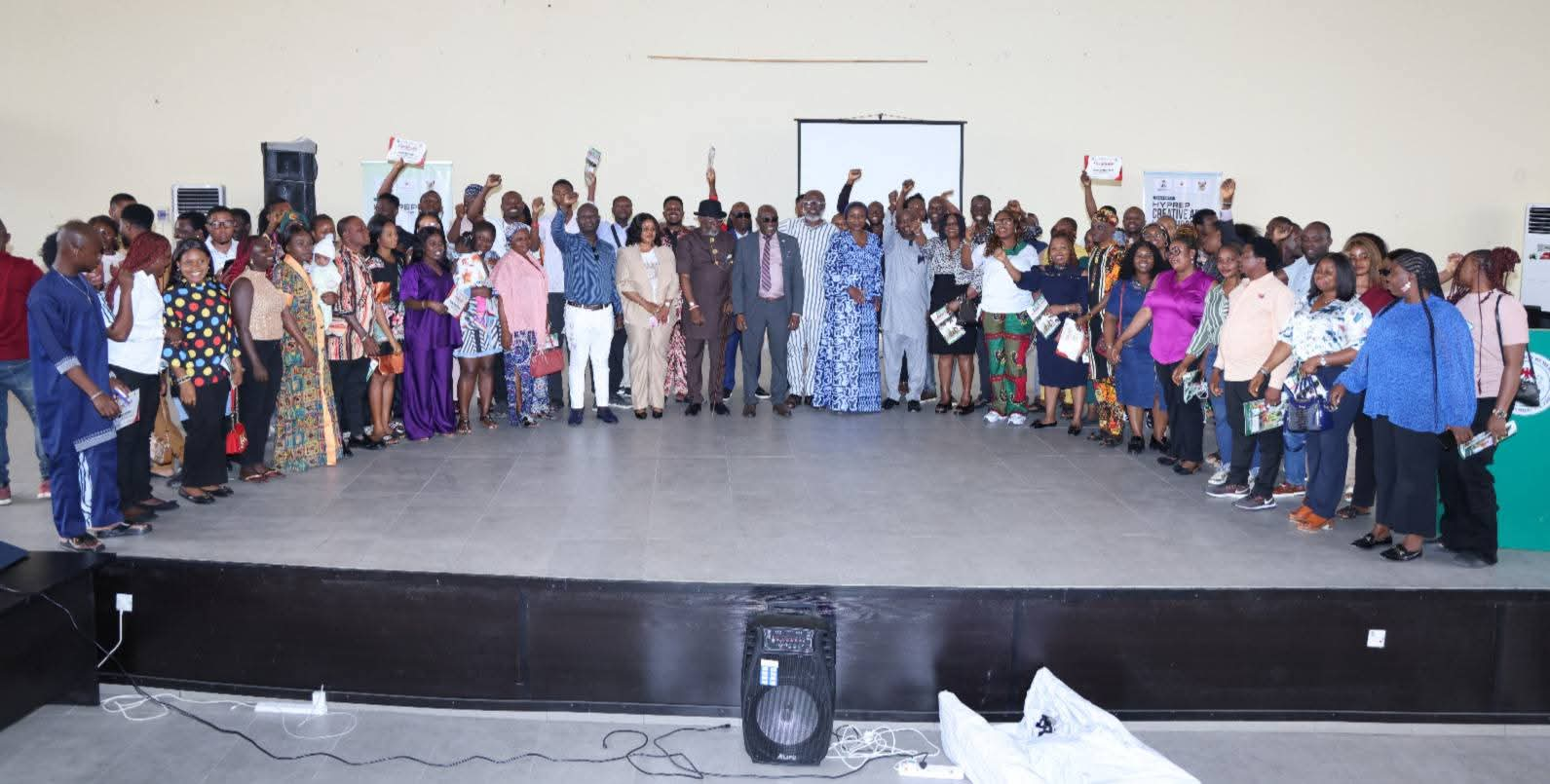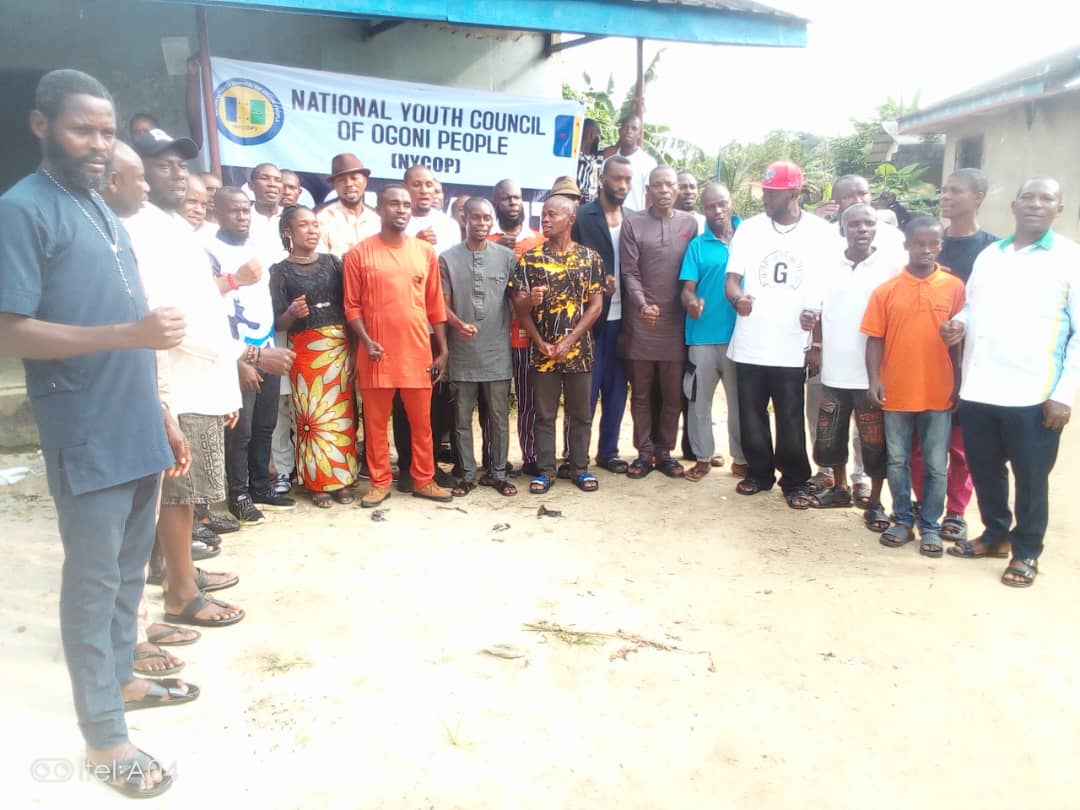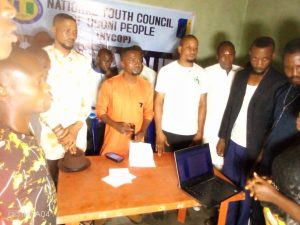Nation
Farmers,Herders Crisis: ‘Over 300,000 People Displaced In Four States’

Zinariya Consult, a research development and policy advocacy actor said it was estimated that more than 300,000 people were displaced in four states due to the farmers and herders crisis in Nigeria.
One of the lead researchers commissioned for the work by Zinariya Consults, Dr Joseph Ochogwu, and Associate Research Professor with the Institute for Peace and Conflict Resolution revealed this while presenting the policy brief.
The research presentation which listed the states as Benue, Plateau, Nasarawa and Taraba held on Thursday in Abuja with the topic: “Trends and Dynamics of Conflict between Farmers and Pastoralists in Nigeria’s Benue Valley.
According to Ochogwu, Nigeria’s Benue valley comprising Benue, Plateau, Taraba, Nasarawa, Adamawa and Kaduna have experienced escalating tensions between farmers and herders.
This he said had led to deaths, loss of livelihoods, displacements and disruption of states’ economy within the area.
He said that the conflict which was primarily a contest over land and water was threatening the country’s food security and stability.
“The current crisis has assumed ethnic and religious dimensions.
“From 2001 to 2018, about 60,000 deaths were recorded in multiple clashes, it is estimated that more than 300,000 were displaced across states, 176,000 in Benue, about 100,000 in plateau, and 100,000 in Nasarawa and about 19,000 in Taraba.
“These displacements were mainly due to the surge of attacks and counter-attacks by the headers and farmers communities, in Benue alone, it is estimated that the crisis led to more than N400 billion economic losses resulting from destruction of properties.
“Between 2017 and May 2020, 645 attacks were carried out, 2,539 people were killed and 254 kidnappings were recorded in various states in Nigeria.’’
Ochogwu said that key findings of the research included trends and pater of the conflict, gender dimension of the conflict, demographic shift, mental health and psychological support, and community resilience among others.
He noted that between 2018 and 2019, access to water and grazing land became more competitive.
This, Ochogwu noted led to frequent arguments, adding that there was distrust due to differences in ethno-religious and cultural identities and values.
He said that the research made some recommendations to address the farmers and herders crisis in Nigeria which were informed by critical analysis of the trends and dynamics of the conflict in Benue, Plateau and Taraba states.
He said that governments at all levels should work together to deploy a joint task force comprising of Army, Navy, Airforce, Police, para-military and civil institutions to restore law and order and build the population’s confidence in the government.
Ochogwu said that the complex nature of the conflict required participatory, inclusive, coordinated and sustainable solutions.
He urged the state governments to strengthen the already existing community policing structure such as vigilantes for intelligence gathering.
According to him, the research recommended that development partners should partner with the government and community-based organisations to ensure that women are mainstreamed in peace building programmes.
He said that the governments in key states should work with Civil Society Organisations, media organisations, gender and peace building experts to develop programmes using conventional media, and social media among others to deconstruct social norms.
Ochogwu urged the Federal Government to order the investigation of all recent violence between farmers and pastoralists and expedite the trails of individuals or groups found to have participated, sponsored or involved in violence.
He said that the research recommended that governments should work together to tackle youth unemployment and underemployment.
Ochogwu said that state governments in Benue, Plateau and Taraba should recognise the critical role of religious and traditional institutions in peace building in the communities and include them in direct government and policy formulation process.
He said that formal multi-stakeholders alternative resolution mechanism should be set up at the state and council levels, adding that projects on social protection after conflicts such assets transfers and capacity building for income diversification should be supported by government.
The research was carried out by Zinariya with support from Global Rights and Open Society Initiative for West Africa (OSIWA).
Nation
Accolades, Fanfare As Ogbakor Ikwerre President General Celebrates 80th Birthday

The President General of Ogbakor Ikwerre Cultural Organisation Worldwide and the Mgboh XIII of the Mgboh Royal Family of Emohua Kingdom in Emohua Local Government Area of Rivers State, Eze (Barrister) Godspower Onuekwa, penultimate Friday celebrated his 80th birthday with pomp, pageantry and fanfare.
The celebration, which commenced with a symposium organised in his honour at Rivers State University on Thursday, August 21,2025, got to a resounding climax on Friday at Suntai Event Centre in Port Harcourt, where people from all walks of life, including business associates, friends, well-wishers, relatives, community folks, traditional rulers, and admirers, gathered to pay glowing tributes to the celebrant.
Before then, a well attended thanksgiving service was held that same Friday at Emmanuel Anglican Church, Okoro-Nu-Odo, to honour him and return gratitude to God Almighty for the fruitful and eventful life and accomplishments of the Emohua leader and icon.
The service which was officiated by Rt Rev Wisdom Budu Ihunwo, Bishop of Niger Delta North had other renowned and respected clerics like Most Rev(Dr) Blessing Enyindah, Dean, Church of Nigeria (Anglican Communion); Rt Rev(Dr) Emmanuel Oko-Jaja, Bishop, Diocese of Niger Delta; Rt Rev Innocent Ordu, Bishop, Diocese of Evo; and Ven Solomon Eze Nelson, Archdeacon, Okoro-Nu-Odo; among others lined up as officiating ministers.
The service lived up to its billing, as it featured powerful and soul-lifting praise and worship; point-blank prayers; and beautiful renditions, which electrified the entire atmosphere, essentially packaged to thank God for the life of the celebrant.
However, the crowning moment actually came when the who is who, the crème de la crème of the society, thronged the terraces and fabulously decorated expansive hall of Suntai Event Centre, to celebrate Eze Onuekwa, amid accolades, aplomb and panache, wining and dining, and clinking of glasses with him and all.
The chairman of the colourful ceremony, Chief Evans Woherem, who was represented by Eze(Prof) Christian Akani of the prestigious Ignatius Ajuru University of Education, praised the celebrant for his youthfulness in spite of clocking 80 years, generosity, humility, humaneness and selfless services to the Ikwerre ethnic nationality, the Niger Delta and Nigeria, and called on all and sundry to emulate his good legacies and simple disposition towards life and existence.
Goodwill messages also poured in in torrents to underscore and salute the doggedness, resilience, astuteness and uniqueness of the endearing life of the celebrant, with Prof Emenike Wami, the Ochia Ohna Ikwerre(XIV), taking the lead.
Prof Priye Iyalla, the wife of late renowned writer, novelist and playwright, Dr Elechi Amadi, held the audience spellbound as she masterfully reeled out the profile of the celebrant, amid intermittent applause from the crowd.
The Tiv Community from Benue State, resident in Rivers State, were not left out, as they honoured and decorated Eze Onuekwa in their complete traditional regalia.
Cultural displays from Baptist Church, Rumuowhor; ADNA Wogbuji Dancing Group, Egbeda; Tiv Dancing Group; and Promoter Eze and Rumu-Mgboh Emohua Wrestling Group, equally added colour and grace to the occasion, with the celebrant and his wife, Dame Ann Onuekwa, joining them to wriggle their waists and bodies in ecstasy.
In his response, the highly elated celebrant, Eze Onuekwa thanked all those gathered to celebrate with him, saying, celebrations would never cease in their homes, and attributed everything he represents in life, including his modest accomplishments to God.
Eze Onuekwa, while addressing newsmen, harped on the need for hard work among the youths and members of Ogbakor Ikwerre Cultural Organisation Worldwide, as a way of sustaining and giving meaning to the motto of the organisation, which he noted is anchored on peace, unity and progress.
He specially thanked God for sustaining his life, and for making everything possible for him and his family, saying, he was joyous that he has today become an octogenarian and elder statesman in Rivers State.
His son and medical practitioner, Dr Samuel Chizia Onuekwa expressed delight that people from far and near had come together to celebrate the father, whom he described as a role model and great inspirator.
He said it was a good thing that the children were celebrating their father when he is alive, stressing that the last time Eze Onuekwa was celebrated in such magnitude was 20 years ago, during his 60th birthday celebration, and prayed God to grant him many more years in good health.
Among dignitaries who graced the event were Senator Andrew Uchendu; Chief Sampson Agbaru; Prof Emenike Wami; Dr Peter Didia; Eze(Prof) Samuel Ugo Onyeka; and a host of others. Justice Iche Ndu(rtd); and C O Kattey were among personalities that attended the thanksgiving service, while the Vice Chancellor of Rivers State University, Prof Isaac Zeb-Obipi led the academics who graced the symposium, alongside Eze G A O Omodu.
Nation
Ensure That Ogoni Is Heard In The Right Way, HYPREP Urges Creative Arts Trainees

As the 100 Ogoni youths trained by the Hydrocarbon Pollution Remediation Project (HYPREP) in Creative Arts close out their training on Tuesday at the Theatre Arts Department, University of Port Harcourt, the Project Coordinator of HYPREP, Prof Nenibarini Zabbey, has urged the beneficiaries to use the skills acquired to ensure that the Ogoni stories are told and heard in the right way.
The trainees, who had completed a four- month training in script writing, film production and make-up are beneficiaries of the HYPREP sustainable livelihood programme, aimed at providing high demand skills to Ogoni youths in the lucrative creative arts and entertainment industry.
Zabbey described the Creative Arts training as well as other programmes and interventions as HYPREP’s strategic sustained effort to create alternative sources of livelihood.
”Targeted capacity building for Ogoni youths and women remains a central strategy in HYPREP’s livelihood restoration and improvement efforts. Our goal is to reach every part of the Ogoni community and ensure that no group or talent pool is left behind. This training is a deliberate step to empower young people who aspire to make their mark in the creative and entertainment industry”, he said.
While commending the trainees for producing four short films within the training period, one of which was premiered at the ceremony-Dirty Festival, the Project Coordinator noted that the training would serve as a springboard into the industry, and enable them earn a living, become entrepreneurs, and open new doors of opportunities for themselves and their communities. The three other movies are Open Pain, Bomu and Green War.
He enjoined them to utilise their skills and platforms to promote civic responsibility, peace, and environmental sustainability, urging them to ensure that Ogoni is heard in the right way, speak for HYPREP and highlight the progress being made in implementing the recommendations of the UNEP Report.
Other speakers at the event, including the Director of Technical Services of HYPREP, Prof. Damian-Paul Aguiyi; Dr Ovunda Ihunwo, Head of the Theatre Arts Department of the University of Port Harcourt; Chief Douglas Experience, the Project Coordinator of Halibiz Consult Limited; and Mrs Josephine Nzidee, Head, Sustainable Livelihood of HYPREP, all applauded HYPREP for the training, and charged the trainees to maximise the opportunity.
The trainees were later presented certificates of participation.
Visibly elated Ms Lebee Tornwe, one of the beneficiaries, thanked HYPREP and the Project Coordinator for offering the trainees the rare opportunity to acquire skills in the creative arts and entertainment industry, and expressed delight that Dr Ihunwo and Halibiz Consult Limited gave their all in grooming them.
With the wrapping up of the Creative Arts training(100), HYPREP has trained 230 Ogoni youths in high demand skill sets ,viz; seafaring(100); and aviation (30). The Project will this year, commence training in other skill areas, including Mechatronic, Aviation, Full-Stack Development, Commercial Diving, Underwater Welding and Geographic Information Systems (GIS).
Still in the offing is the training for Ogoni Persons Living with Disabilities in five skill sets- fish farming; basic computer skills; photography; fashion and design; and shoemaking in line with their Needs Assessment and HYPREP’s policy of inclusivity.
Nation
NYCOP Urges Stakeholders To Develop, Empower Ogoni Youths

The National Youth Council of Ogoni People (NYCOP) had called on stakeholders to work collaboratively towards the development and empowerment of Ogoni youths.
NYCOP made the call in a communique issue over the weekend after an emergency Congress in Port Harcourt and signed by its President, Comrade Raymond Nwibani Marcus.

In the communique, NYCOP endorsed President Bola Tinubu’s appointments of the Governing Council and Board of Trustees (BOT) members of the Hydrocarbon Pollution Remediation Project (HYPREP), particularly Rt. Hon. Emmanuel Nwika Deeyah as Chairman of HYPREP’s BOT.
It respectfully appealed to the President to consider appointing a representative from the Movement for the Survival of the Ogoni People (MOSOP) under the leadership of Engr. Olu Andah Wai-Ogosu, being the pioneering social vehicle for Ogoni advocacy since the inception of the Ogoni struggle, adding that it would significantly contribute to the decision-making process.
The body commended the overall management of HYPREP and urges the President to continue funding the HYPREP project.
NYCOP furthermore recommended considering the conversion of HYPREP from a project to a full-fledged agency of the Federal Government of Nigeria.
The communique also stated that NYCOP thanked President Tinubu for establishing the Federal University of Environmental Technology, and for appointing key staff, forming a dialogue committee, and initiating infrastructural projects like the Eleme axis of the East-West Road and the Bonny-Bodo Road, significantly enhancing regional connectivity and economic prospects.
In solidarity with the Renewed Hope Agenda, the endorsed President Tinubu’s second-term bid, saying it believes his leadership embodies the aspirations of the Ogoni people and Nigerians at large.
“After thorough consideration of the Disciplinary Committee’s report, NYCOP resolves:
” To indefinitely suspend Comrade Nade Nade Burale from his position as Secretary General due to misconduct.
“To declare Comrade Saviour Imeabe persona non grata on Ogoni youth issues, given his actions’ potential to instigate crisis in Ogoni and beyond” the communique stated.
NYCOP in his resolution issued a 7-day ultimatum to former HYPREP BOT Chairman Mike Nwialeghi to explain the $100 million HYPREP fund investment, warning of potential litigation.
NYCOP reaffirmed its commitment to safeguarding Ogoni youth interests and preventing personal aggrandizement.
According to the communique the resolutions demonstrate NYCOP’s efforts to promote the collective welfare and advancement of Ogoni youth.
“We will no longer tolerate any individual or group using the name or issues of Ogoni youth for personal aggrandizement.
” Our mandate is clear: to promote the collective welfare and advancement of Ogoni youth” the communique said.
NYCOP passes a vote of confidence in Hon. Emmanuel Nwika Deeyah, acknowledging his impeccable credentials and credibility to lead the BOT of HYPREP effectively.
Kiadum Edookor
-
Maritime2 days ago
Minister Tasks Academy On Thorough-Bred Professionals
-
Maritime2 days ago
Customs Cautions On Delayed Clearance, Says Consignees May Lose Cargo
-
Maritime2 days ago
NCS Sensitises Stakeholders On Automated Overtime Cargo Clearance System
-
Maritime2 days ago
Lagos Ready For International Boat Race–LASWA
-
Maritime2 days ago
Shoprite Nigeria Gets New Funding to Boost Growth, Retail Turnaround
-
Politics2 days ago
I Would Have Gotten Third Term If I Wanted – Obasanjo
-
Sports2 days ago
Bournemouth, Newcastle Share Points
-
Sports2 days ago
Iwobi Stars As Fulham Overcome Brentford

